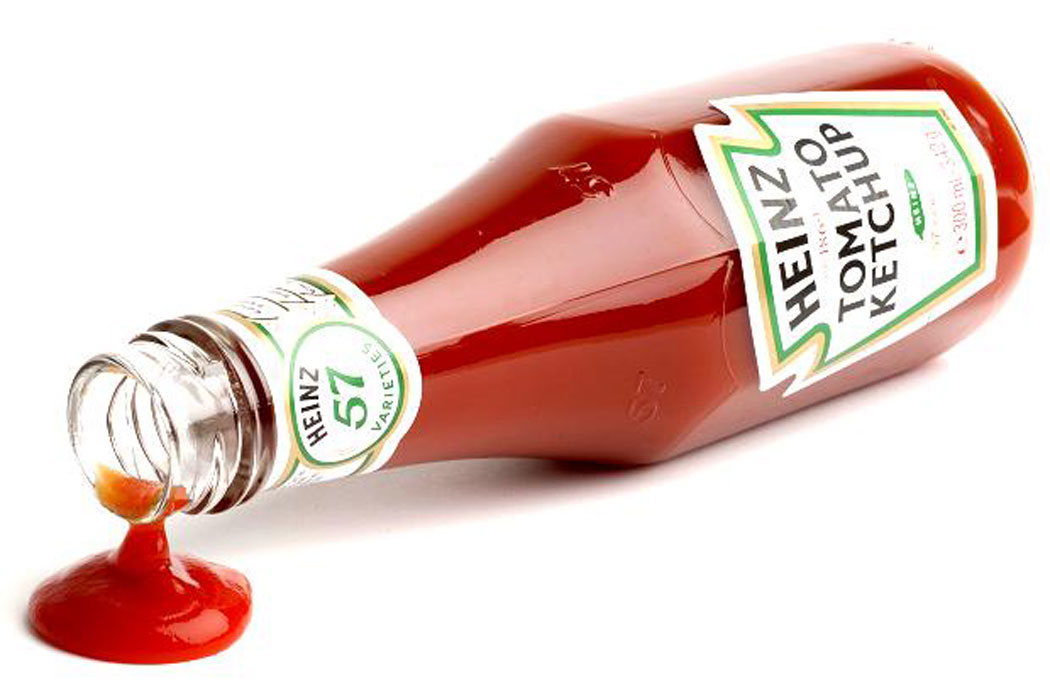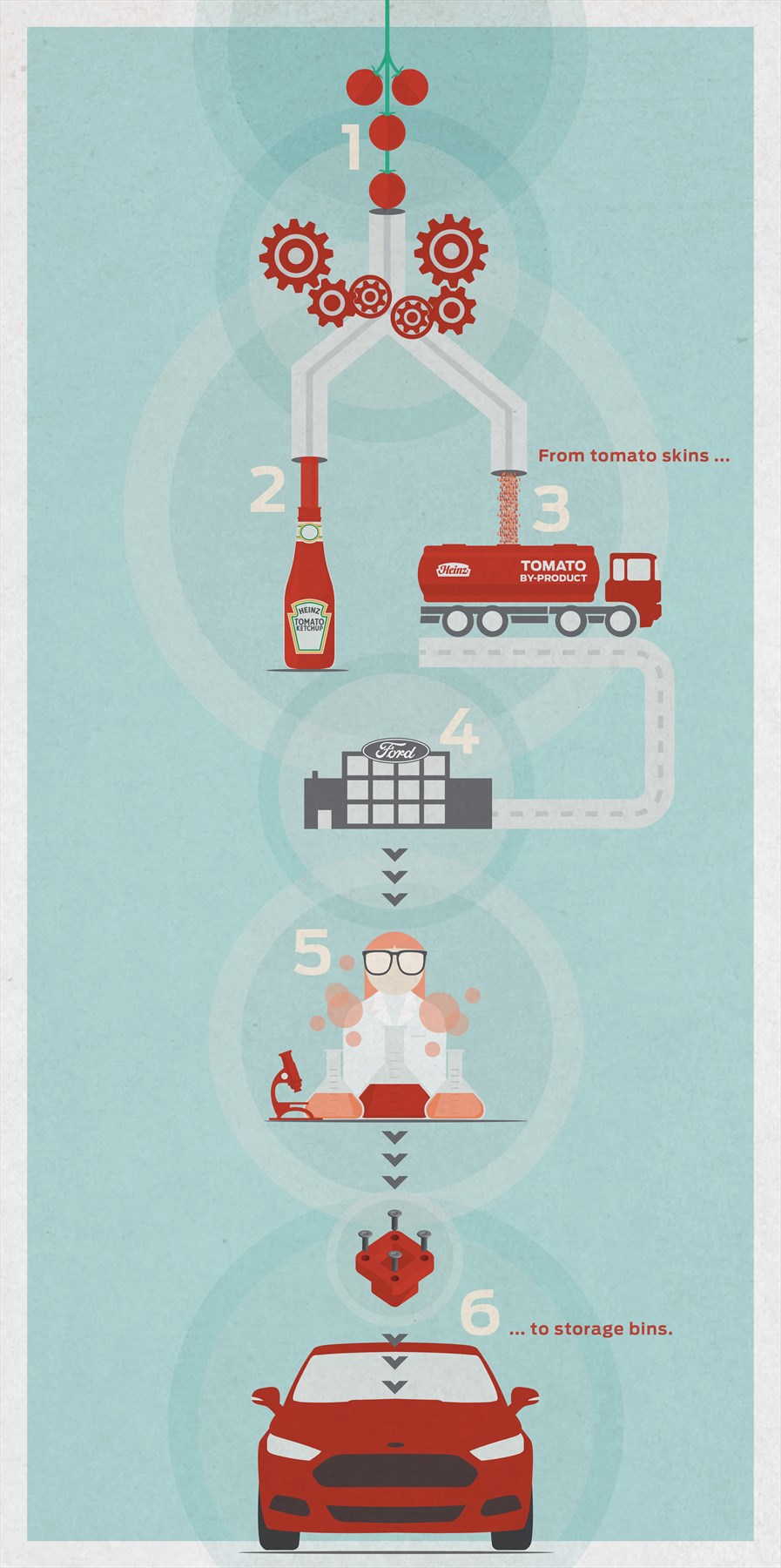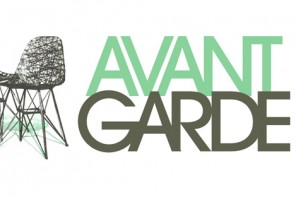You Say Tomato; We Say Tom-Auto
It might seem that tomatoes and cars have nothing in common, but researchers at Ford Motor Company and H.J. Heinz Company see the possibility of an innovative union.
Researchers at Ford and Heinz are investigating the use of tomato fibres in developing sustainable, composite materials for use in vehicle manufacturing. Specifically, dried tomato skins could become the wiring brackets in a Ford vehicle or the storage bin a Ford customer uses to hold coins and other small objects.
“We are exploring whether this food processing byproduct makes sense for an automotive application,” said Ellen Lee, plastics research technical specialist for Ford. “Our goal is to develop a strong, lightweight material that meets our vehicle requirements, while at the same time reducing our overall environmental impact.”
Go Further
Nearly two years ago, Ford began collaborating with Heinz, The Coca-Cola Company, Nike Inc. and Procter & Gamble to accelerate development of a 100 percent plant-based plastic to be used to make everything from fabric to packaging and with a lower environmental impact than petroleum-based packaging materials currently in use.
At Heinz, researchers were looking for innovative ways to recycle and repurpose peels, stems and seeds from the more than two million tons of tomatoes the company uses annually to produce its best-selling product: Heinz Ketchup. Leaders at Heinz then turned to Ford.
“We are delighted that the technology has been validated,” said Vidhu Nagpal, associate director, packaging R&D for Heinz. “Although we are in the very early stages of research, and many questions remain, we are excited about the possibilities this could produce for both Heinz and Ford, and the advancement of sustainable 100% plant-based plastics.”
Ford’s commitment to reduce, reuse and recycle is part of the company’s global sustainability strategy to lessen its environmental footprint while accelerating development of fuel-efficient vehicle technology worldwide. In recent years, Ford has increased its use of recycled non-metal and bio-based materials. With cellulose fibre-reinforced console components and rice hull-filled electrical cowl brackets introduced in the last year, Ford’s bio-based portfolio now includes eight materials in production. Other examples are coconut-based composite materials, recycled cotton material for carpeting and seat fabrics, and soy foam seat cushions and head restraints.











